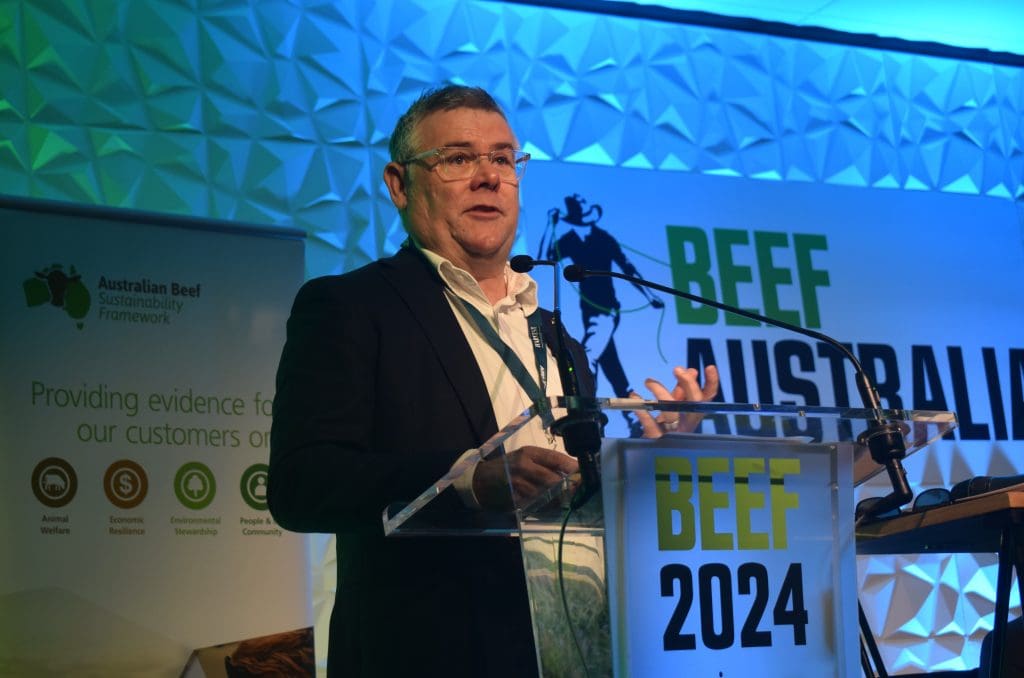AUSTRALIA’S agriculture minister is quickly becoming one of the most unpopular ag ministers in recent history – certainly since Joe Ludwig – with the botched handling of the live sheep phase out resulting in agriculture groups uniting and declaring they have no confidence in the Government.

Murray Watt
It is a remarkable turnaround from the start of Murray Watt’s term as agriculture minister, who had several industry leaders declaring they thought he was a “good bloke” and that they were prepared to work with the Government.
The portfolio was always going to be a tough one for the inner-city lawyer tasked with delivering an election commitment to phase out a key agricultural market.
What seemed to be a great relationship with the industry started to deteriorate more than a year-ago when the minister announced that the Government was still keen to phase out live sheep exports. 25 industry groups sent a letter to the minister shortly after to say a live sheep ban was a “red line that cannot be crossed”.
The minister has been forging ahead with the ban ever since, saying it is an election commitment and the Government needs to deliver it. Industry says that position ignores credible science and data, is only about winning votes on the east coast and that it sets a precedent for other markets to follow.
While the red line that cannot be crossed has now been crossed, the lack of empathy from the minister in delivering the policy has really put the industry offside.
Minister Watt’s week prior to the event was spent with Prime Minister Anthony Albanese enjoying the hospitality of the beef industry at Beef 2024 Rockhampton. The minister was generously given plenty of time on stage by various event organisers, allowing him to deliver his messages to the industry, but notably there were no events we’re aware of where he hung around to take direct public questions from the thousands of producers at Beef 2024.
He then went to Perth and delivered the news to WA via zoom call, with farmers and activists evidently on the call together. According to Australian Live Exporters’ Council chief executive officer Mark Harvey-Sutton the activists on the call cheered on the announcement.
 The announcement was clearly distressing for many – WA sheep producers are now trying to work out what lifelong investments are going mean in the coming years, other parts of the industry like exporters and shearers are wondering about their future and many in the cattle industry are hoping their live export markets don’t follow.
The announcement was clearly distressing for many – WA sheep producers are now trying to work out what lifelong investments are going mean in the coming years, other parts of the industry like exporters and shearers are wondering about their future and many in the cattle industry are hoping their live export markets don’t follow.
But the minister has appeared dismissive of the genuine concern agricultural lobby groups in Canberra have been raising.
When they walked out of a post budget speech the Minister was making on Wednesday he sarcastically joked that it was just as well he didn’t raise the issue earlier in his speech.
He has also been pointing to members of the Coalition backing a live sheep phase out in 2018 – leading many farm leaders, including WA Farmers president John Hassell, to call for him to stop with the politics on Twitter/X
The minister replied to Mr Hassell with: “something about pot, kettle?”
To which Mr Hassell said: “Thing is I have never insulted Murray (obviously this is a staff member) I have however pushed back very hard against your vile ban based on a sellout of our industry for 816 votes from the animal justice party.”
Relationships with lobby groups sour
Now with the relationship with the farm lobby has soured even further, with a vote of no confidence passed by the National Farmers’ Federation members’ council – which includes state farm organisations and peak groups like Cattle Australia.
The Members Council carried three motions:
- That the NFF no longer has confidence in the Albanese Government to act in the interests of Australian agriculture.
- The NFF believe Cabinet and caucus have made the live export decision without considering the scientific and industry data presented in the consultation process to the detriment of all sectors of agriculture.
- The NFF rejects the current assistance package as a token gesture and sees the only satisfactory outcome is the continuation of the trade in live sheep.
The minister responded the no confidence motions with more pot shots at the Coalition.
“Our government has a strong track record of working with farmers, to deliver on their priorities.
“We’ve delivered record biosecurity funding from taxpayers and importers to protect farmers, something that was sought by the NFF after years of biosecurity cuts by the National Party.
“We reopened trade with our biggest trading partner, which was destroyed by the former Coalition Government, and we’ve opened more new market access than ever before.
“We’re assisting farmers adapt to climate change, rather than pretend it is not happening.
“And we’re rebuilding the ag workforce after years of neglect, both before and during COVID.
“We have also provided more than $6.3 million to the NFF in 2022-23 to deliver various programs.
“Unlike David Littleproud, who called the NFF ‘ignorant’ and ‘sideline critics’ when he was Minister, I maintain an open and honest dialogue with the leadership of the NFF.
“In fact, twice this week I’ve agreed to meet with the NFF President and CEO, so they could put forward projects they want to collaborate with us.”
